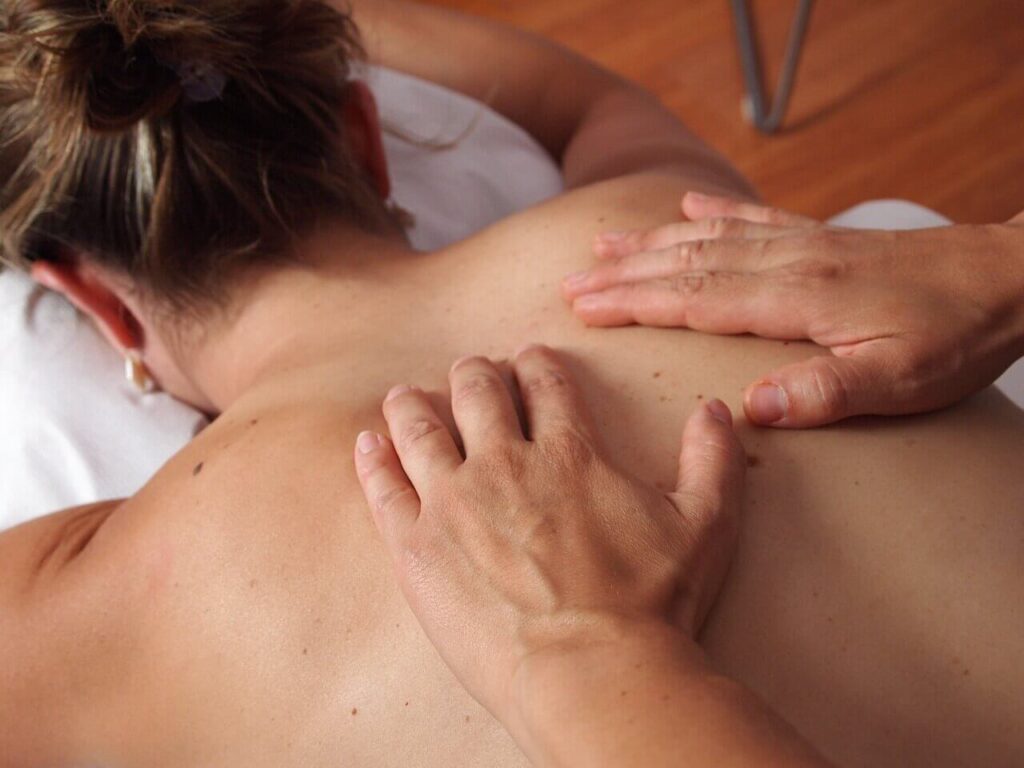Feel overwhelmed by stress? You’re not alone. Life is stressful these days. Luckily, your body has a secret weapon to help you snap out of stress loops – the vagus nerve. The vagus nerve is like your body’s built-in stress buster. It hits the reset button on your stress response, helping you chill out and handle stress better. Ready to tap into your vagus nerve’s power? Read on for 10 holistic tools that activate the vagus nerve to help you find some inner calm. But before we dive in, let’s do a quick rundown of the vagus nerve.
What is the Vagus Nerve?
The vagus nerve is the largest cranial nerve in your body. Known as the “wandering nerve,” it winds throughout your body connecting your brain, heart, lungs, and digestive system. It’s like an information superhighway that allows your organs to communicate.
The vagus nerve is part of your autonomic nervous system (ANS). It plays a role in sensory and motor functions you do without conscious effort like:
- Breathing
- Digestion
- Heart rate
- Immune system response
- Inflammation
- Mood
- Mucus and saliva production
- Speech
- Skin and muscle sensations
- Urine output
Your ANS has two branches: the sympathetic nervous system and the parasympathetic nervous system.
The vagus nerve belongs to the parasympathetic branch, known as your “rest and digest” response. It helps you relax and switch off “fight or flight” mode when your sympathetic nervous system becomes activated. On top of that, it enhances neuroplasticity, allowing your brain to change and form new habits.
And here’s the good news – you can stimulate your vagus nerve intentionally. This can help regulate your nervous system, relax your body and mind, and improve your overall well-being.
How to Stimulate the Vagus Nerve
Vagus nerve stimulation devices have shown success in treating conditions like epilepsy and depression. But you don’t need fancy gadgets to improve your vagal tone. There are plenty of DIY vagus nerve exercises and tools that can help you relax.
Here are 10 holistic ways to activate your vagus nerve:
1 – Breathwork
Slowing down your breath is one of the fastest holistic ways to stimulate your vagus nerve. When you’re feeling stressed, your breath shifts. You may breathe quicker, take shallow sips of air, or forget to breathe altogether. These breath-holding patterns activate your “fight or flight response,” which can lead to a vicious cycle of fear and anxiety.
Luckily, taking slow deep breaths helps you move out of fight or flight. That’s because your vagus nerve runs through your belly. When you take deep diaphragmatic breaths, it activates the vagus nerve, sending signals of safety to your body.
The exhale is what triggers the relaxation response. So try extending your exhales to make them longer than your inhales. Many breathwork patterns can work here. Box breathing, 4-7-8 breathing, alternate nostril breathing, and diaphragmatic breathing are all good options. No matter which breath you choose, be sure to breathe deep into your belly, not your chest. Practice for a few minutes any time you need a stress soother.
2 – Singing or humming

Carpool karaoke isn’t just fun, it activates your vagus nerve. That’s because four branches of the vagus nerve run through your neck. When you sing loudly, your vocal cords vibrate, stimulating your vagus nerve. So if you needed an excuse to sing more, now you’ve got it!
Not a fan of singing? No worries. Humming a tune creates the same vibrations and can have a similar effect. One study had high blood pressure patients practice a yoga technique called “bee humming” breath. In just 5 minutes their heart rate variability increased, a sign of improved parasympathetic activity.
3 – Gargling
Think gargling is just for sore throats? Nope. It’s also a simple exercise that can strengthen your vagus nerve. Like singing and humming, gargling vibrates your vocal cords to improve vagal tone.
To try it out, take a sip of water and gargle vigorously for 30 seconds to one minute. Your vagus nerve runs through the back of your throat. So be sure to direct the water there for the best effects.
4 – Meditation or yoga

Meditation and yoga focus on mindfulness and deep breathing. This makes them excellent tools to give your vagus nerve a boost. Doing these practices slows down your breath and helps you stay in the present moment. This activates the parasympathetic nervous system, helping you feel calm and relaxed.
If you’re new to meditation and aren’t sure how to start, many apps can walk you through it. Headspace, Calm, and Insight Timer are all good options. And if hitting a yoga studio sounds intimidating, that’s okay too. There are tons of free at-home yoga routines you can do.

5 – Laughter
Having a good chuckle not only makes you feel good, it gives your vagus nerve a workout. That’s because your vagus nerve runs through your abdomen. When you let out a hearty belly laugh, it activates your vagus nerve and boosts your mood.
To harness this power, look for ways to let more laughter into your life. Watch comedy movies, share silly memes, or spend time with funny friends.
6 – Exercise
Exercise boosts your mood, increases circulation, reduces inflammation, and yes – stimulates the vagus nerve. In particular, endurance training and interval training have powerful effects on vagal tone. Both are shown to improve heart rate variability and increase parasympathetic activity.
To harness this power, aim to get 20-30 minutes of physical activity each day. Jog, bike, swim, lift some weights, or play some pickleball. You’ll tone your vagus nerve and get a hit of mood-boosting endorphins.
7 – Cold water exposure

Cold water therapy has become trendy these days, and for good reason. Cold water exposure stimulates your vagus nerve and slows down your heart rate. And you don’t have to do a full-on ice bath to see the benefits.
Even submerging your face in ice-cold water or placing an ice pack on the back of your neck can have an impact. Or if you’re feeling brave, consider taking a cold shower to give your vagus nerve a boost.
8 – Massage

There’s nothing quite like a massage to help you chill out. And it turns out, some of those relaxing effects may be due to vagus nerve stimulation. Massage melts away stress and tension, but it also activates the vagus nerve.
One study found that foot reflexology massage improved vagus nerve activity and reduced blood pressure. This is interesting, considering the feet are nowhere near the vagus nerve!
Even a short 10-minute shoulder massage can improve heart rate variability and promote relaxation.
9 – Acupuncture

Part of the vagus nerve, known as the auricular branch, runs through your ear. Acupuncture is an excellent way to stimulate this branch.
Research shows auricular acupuncture, or “ear acupuncture” can promote relaxation and improve vagal tone. It reduces heart rate and improves heart rate variability, both signs of parasympathetic activity.
10 – Chiropractic care

Chiropractic adjustments get the spine in proper alignment. This reduces pressure on your nerves, including the vagus nerve. This can, in turn, improve nervous system function.
Cervical adjustments can be particularly helpful since the vagus nerve runs through the neck. When done regularly, chiropractic care can help to keep the vagus nerve working properly to promote balance in your nervous system.
Activate Your Vagus Nerve With Holistic Medicine in the Chicago Area
Stimulating your vagus nerve is a powerful holistic tool to melt away stress and enhance your well-being. Done regularly, the exercises we’ve covered will tone your vagus nerve to promote relaxation.
Holistic therapies like massage, acupuncture, and chiropractic care can also give your vagus nerve a boost. And at Anchored in Health, we offer all three!
If you live in the Chicago area and are tired of chronic stress wearing you down, we’re here to help. Our holistic doctor has been helping Chicagoans improve their health and well-being for over 20 years.
So if you’re ready to ditch stress and improve your resiliency, follow these steps:
- Contact us with questions.
- Book your first acupuncture, massage, or chiropractic care appointment here.
- Experience how amazing you can feel when your nervous system is in balance!
Other Wellness Services Offered at Anchored in Health in Orland Park, IL
At Anchored in Health, we offer a variety of holistic services to restore health and vitality. This includes functional medicine, the Shape Reclaimed program, genetic testing, and thermography. Reach out to find out how we can help enrich your health and well-being. And for more helpful health tips, feel free to visit our blog.
Disclaimer: The information provided on this blog is for educational and informational purposes only and is not intended to diagnose, treat, cure, or prevent any disease. The content is not a substitute for professional medical advice, diagnosis, or treatment. Always seek the guidance of a qualified healthcare provider with any questions you may have regarding your health or a medical condition.
Reading this blog does not establish a doctor-patient relationship between you and Anchored In Health or any of its practitioners. Reliance on any information provided in this blog is solely at your own risk. For medical concerns, always consult a licensed healthcare provider.
Sources
- https://www.ncbi.nlm.nih.gov/books/NBK537171/
- https://my.clevelandclinic.org/health/body/22279-vagus-nerve
- https://www.ncbi.nlm.nih.gov/pmc/articles/PMC4082307/
- https://www.ncbi.nlm.nih.gov/pmc/articles/PMC7563188/
- https://www.mayoclinic.org/tests-procedures/vagus-nerve-stimulation/about/pac-20384565
- https://www.ncbi.nlm.nih.gov/pmc/articles/PMC10395759/
- https://www.sciencedirect.com/science/article/abs/pii/S1550830720301166
- https://www.ncbi.nlm.nih.gov/pmc/articles/PMC5121464/
- https://www.ncbi.nlm.nih.gov/pmc/articles/PMC10295257/
- https://www.ncbi.nlm.nih.gov/pmc/articles/PMC6334714/
- https://pubmed.ncbi.nlm.nih.gov/22314629/
- https://www.ncbi.nlm.nih.gov/pmc/articles/PMC7479151/
- https://www.ncbi.nlm.nih.gov/pmc/articles/PMC3523683/
- https://www.ncbi.nlm.nih.gov/pmc/articles/PMC8023121/

[…] 10 Ways to Stimulate Your Vagus Nerve (+ Why It’s Important) […]